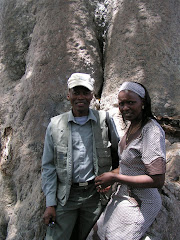The magnitude of child pornography in Botswana is not yet known. However, we provisions have been made in the Children’s Act of 2009 with respect to measures for combating sexual abuse and exploitation of children via the internet. The new Act provides for the facilitation of the respect, protection, promotion and provision of the realisation of child rights. The Act further contributes to the survival, development, participation, and protection of the current and future children in Botswana in compatibility with the Convention on the Rights of the Child and the African Charter on the Rights and Welfare of the Child, all of which Botswana has acceded to.
For instance, the Act provides that:
1) Every child has a right to be protected from sexual abuse and exploitation, including prostitution and pornography.
(2) Any parent, guardian, teacher or other person who, without reasonable excuse, fails to report a case of child abuse or exploitation of which he or she is aware shall be guilty of an offence and liable to a fine of not less than P10 000 but not more than P30 000, or to imprisonment for a term of not less than two years but not more than three years, or both.
(3) Any person, including a parent, who connives with a person who sexually abuses or exploits a child shall be guilty of an offence and liable to a fine of not less than P30 000 but not more than P50 000, or to imprisonment for a term of not less than five years but not more than fifteen years, or both.
(4) The Minister shall devise or cause to be devised programmes to prevent the sexual exploitation of children.
Corruption o f children
(1) A parent, other relative, or other person having custody of a child who causes or conduces to the seduction, abduction or prostitution of the child, or the commission, by the child, of an immoral act, shall be guilty of an offence and liable to a fine of not less than P20 000 but not more than P50 000, or to imprisonment for a term of not less than 12 months but not more than five years, or both.
(2) For the purposes of this section, a person shall be deemed to have caused the seduction, abduction or prostitution of a child if, being the parent, other relative or guardian of the child or having the custody of the child, that person knowingly allows the child to consort with or enter or continue in the employment of a prostitute or person of known immoral character.
Exposing children to pornography
(1) No person shall expose a child to pornographic material or make such material available to a child, or involve a child in the making of such material.
(2) No person shall, in any form or manner, store, keep or distribute any indecent images of a child depicting any form of illegal sexual activity against a child.
Establishment of structures to protect children
The Act provides for the establish a Children’s Consultative Forum, and provisions that children be consulted on matters which affect them, the Act enables children’s voices to be heard.
A National Children’s Council is also established to facilitate, at the National Level, the better planning and coordination of programmes regarding the welfare of Children.
The new Act also establishes Village child well-being committees (Ntebele ke go lebele) at the community level. Plans are under to establish child rights clubs which will be focusing on sensitizing children.
The Children’s Act provides for the opening and maintaining of a Register of child abusers or paedophiles.
(1)The Head of the Department responsible for children’s affairs (referred to in this Part as “the Director”) shall open and maintain a register of service providers and other persons who have been convicted of any offence under this Part, and any person whose name appears in the register shall not be employed by any person who has children in their care and, in the case of an institution, the license issued to that institution shall be revoked.
(2) In the register shall be entered such particulars as are required by this Act or such further particulars as the Minister may, by regulations, prescribe.
(3) Any person may, upon payment of the prescribed fee, and in accordance with any conditions which may be prescribed, consult, inspect or make a copy of, or obtain an extract from, any register referred to in this section.
(4) Entries made in the register shall be a permanent record and may be removed only in accordance with such conditions, and in such manner, as may be prescribed.
Interventions on Cases of Abuse through the New Technologies
There is a need research to establish ‘best practice’ with regard to victim identification and its consequences for the child and non-offending family. There is also an urgent need to utilize inter-agency intelligence to improve detection, within the context of a world wide strategic approach. In addition we need to build on the considerable advances from IT industry to further a more discriminative approach to online protection of children.
Raise awareness for growing risks in cyberspace
There is need to develop awareness and skills among children, parents, communities and the private sector of the risks involved in internet usage. Training sessions are needed to facilitate parents and teachers with the skills required to increase awareness. There is need for collaboration between governments, politicians, the technology industry, the private sector and other stakeholders in order to achieve the necessary policy changes for improved child protection in cyberspace.
Educating children on how to protect themselves
In order to ensure that children and young people will continue to benefit from the enormous opportunities offered online, the project provides interactive information and activities to help them remain safe in the online environment. Program activities include an interactive analysis of child protection environment in cyberspace and follow up activities, mapping and co-ordination with social action programs in the virtual world, the development of internet safety curricula as well as training in schools and awareness rising campaigns. By engaging directly with children in the virtual world, the project wants to establish presence in social networking environments and intervene where necessary. Children and youth participating in the program (or having been reached through awareness initiatives) will be better able to recognize potential risks and to respond appropriately. This will ensure their protection while using technology.
Conclusion
In conclusion one, can say that the internet growth and the use of mobile phones, along with new advances in technology, increases the opportunity for child exploiters and molesters to access children's networks, thus exposing children to sexual abuse and exploitation which negative life long psychological trauma. There is a need for concerted efforts from both governments and stakeholders to take immediate action to combat this problem. Parents should not always express their love by give mobile phones to their children when they are still young.
It is vital to conduct educational and awareness-raising actions focusing on children, parents, teachers, youth organizations and other stakeholders working with and for children with a view to improving understanding of the risks of sexually exploitative use of the Internet, mobile telephones and other technologies, such actions to include information for children on how to protect themselves. They should be able to get help and report incidences of child pornography and online exploitation, and indicators and evaluations to identify the effectiveness of such programmes, not only in relation to increasing knowledge but also in effecting behaviour change.
Subscribe to:
Post Comments (Atom)











No comments:
Post a Comment